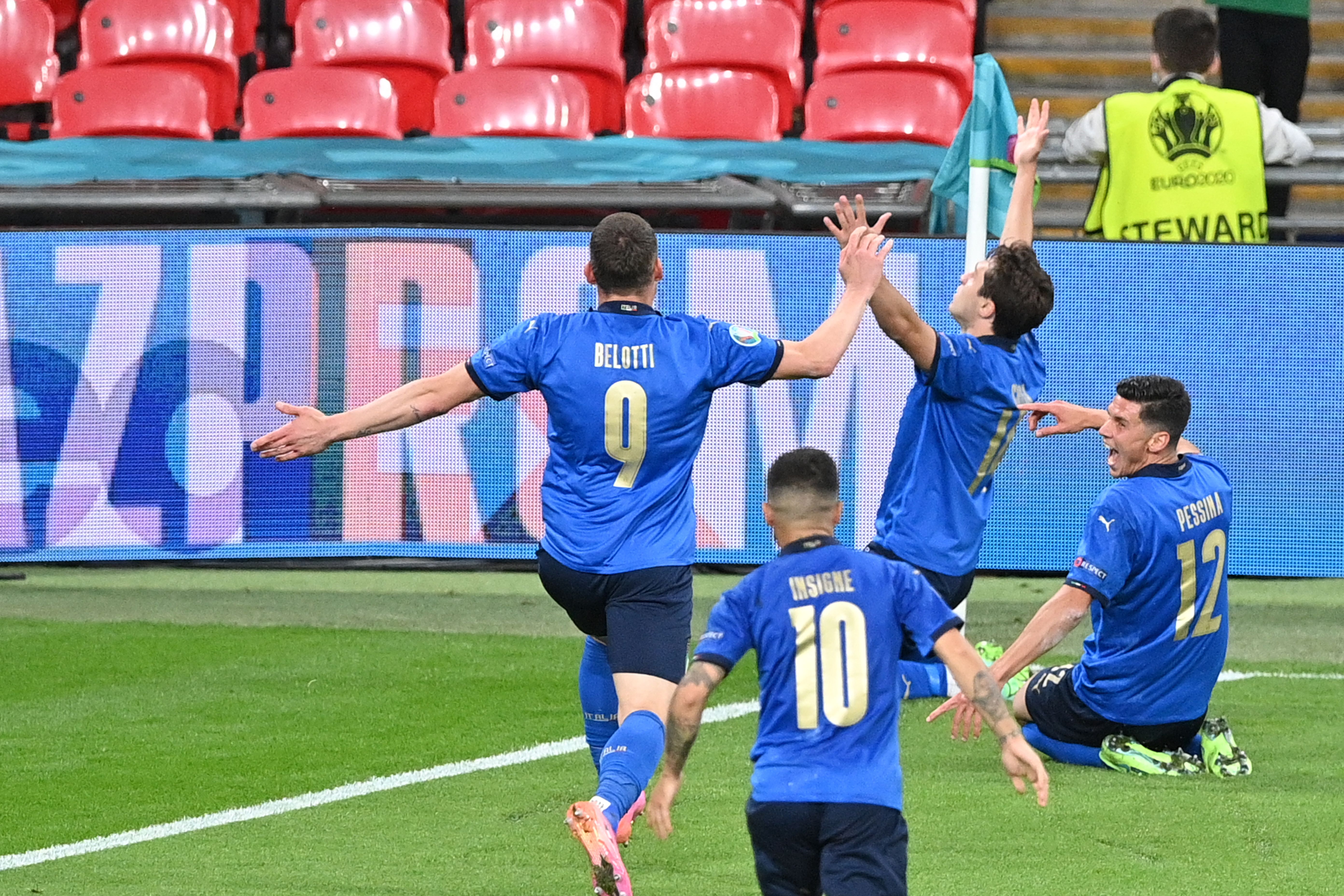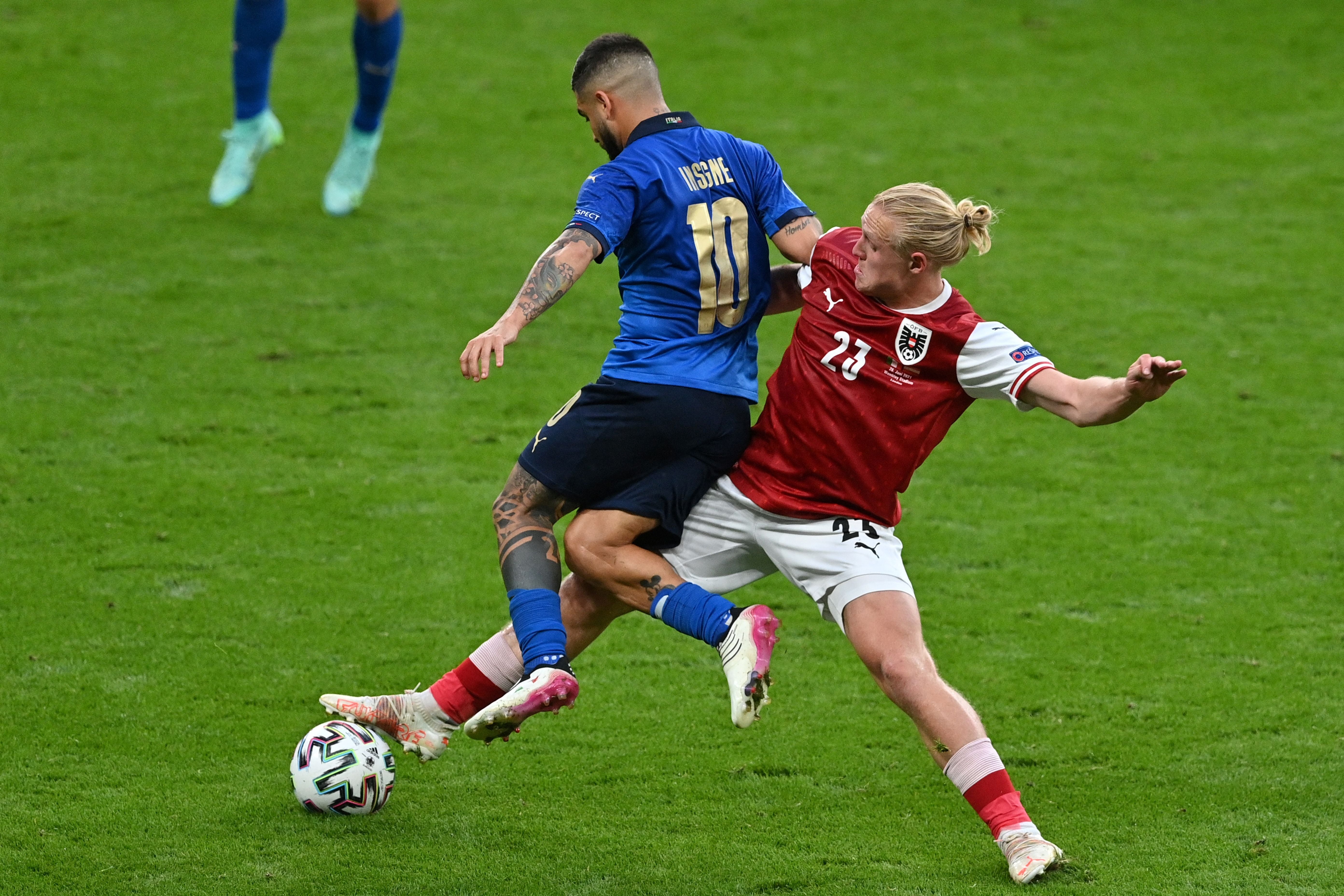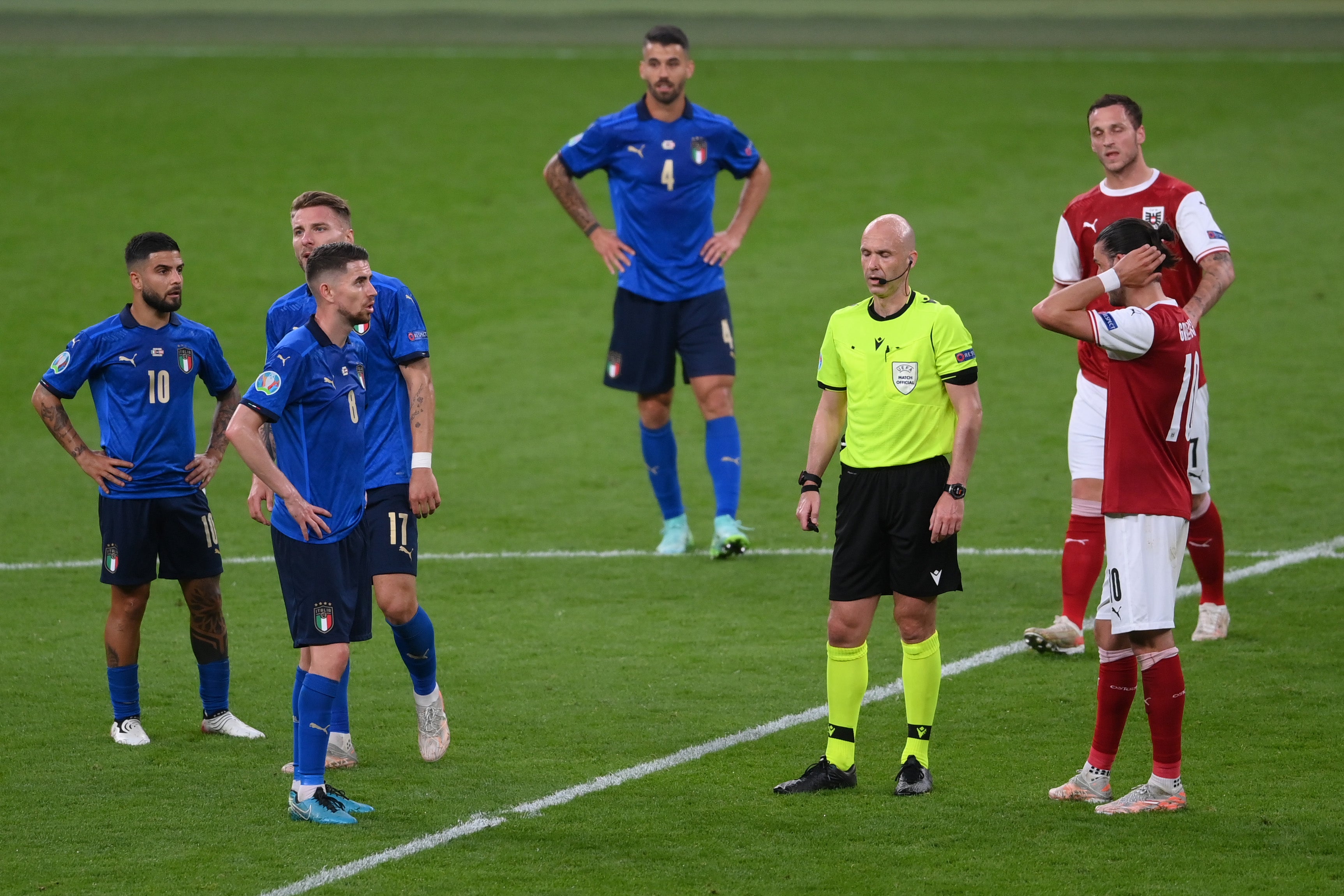Italy vs Austria: Five things we learned as Roberto Mancini’s side prevail in extra time
Italy 2-1 Austria (0-0 aet): Federico Chiesa and Matteo Pessina score late on to send the Azzurri through to the last eight

Italy required two goals in extra-time to defeat a stubborn Austria team and progress to the quarter-finals of Euro 2020.
Federico Chiesa and Matteo Pessina scored quickfire goals after the match had finished 0-0 at Wembley Stadium to set up a last-eight meeting with either Belgium or Portugal.
Austria were competitive and played well, and Italy were starting to get frustrated in the first half when Ciro Immobile decided to try his luck and struck the post from 25 yards with a dipping shot.
Austria continued to trouble their opponents after half-time and thought they had taken a shock lead in the 65th minute when Marko Arnautovic headed in at the back post - but the goal was disallowed as striker was ruled to be offside.
Italy, the great entertainers of the group stage, continued to be subdued and were taken to extra time, but it was there where they caught alight. Substitute Chiesa fired in the opener from a tight angle after the restart, before Matteo Pessina struck shortly before the break.
It looked to have killed the tie, but Austria’s Sasa Kalajdzic pulled one back to set up a tense ending for the Azzurri.
Here are five things we learned as Italy advanced to the last eight...
Italy prove they have the tools to make a deep run
It may have taken longer than expected, but Roberto Mancini’s Italy are safely through to the quarter-finals. It may have been their poorest performance of the Euros so far, but this result will have given the manager more belief that they are ready to make a deep run in the tournament that any of his side’s comfortable wins in the group stages.
Italy proved here that in a tight and closely-contested knockout match, their backline can carry them through. It wasn’t always comfortable and their record-breaking run of clean sheets did come to an end following Kalajdzic’s late header, but with Leonardo Bonucci and Gianluigi Donnarumma, no other defensive unit at this tournament has looked so solid.
While Italy were joyous to watch during the group stages, they were more functional here, often to the point of looking a touch uninspired. But Mancini’s squad is so deep that the manager can afford to bring on the class of Juventus forward Chiesa to add a final and decisive touch of quality when his side needed it most.
The winner of Belgium’s clash with Portugal awaits Italy in the quarter-finals, and the Azzurri showed here that they are capable of grinding it out if either of those teams are prepared to make it a tight and tense encounter. Throughout the groups and now in the last 16, Italy have showed both sides - and now they look ready for more.
Austria benefit from bolder approach
After a couple of abject performances earlier in the tournament, Austria have displayed a huge turnaround in terms of their game-plan and attitude.
Despite being underdogs against Italy, Austria were bold with and without the ball. They looked to build play out from the back and through midfield while when they lost possession, Xaver Schlager and Marcel Sabitzer immediately looked to win it back. Schlager, in particular, was excellent in breaking Italy’s play up.
They also looked to commit more numbers up the pitch on the occasions they managed to break forward, leaving themselves more open than they did earlier in the tournament. David Alaba was restored to his left-back berth, and was more influential in their attacking phases.

It wasn’t reflected in the shot count, but Austria’s approach allowed them to grow in confidence. In previous displays, such as in the 2-0 defeat to the Netherlands, it was hard to see what Austria were trying to do. But at Wembley it was clear to see how Austria wanted to play.
Franco Foda’s team were the better side in the second half against Italy and were a marginal offside call from taking the lead - a much improved performance from a side who eventually did their country proud, and were close to earning even more.
Mancini no closer to solving midfield conundrum
After starring for Italy on his tournament debut against Wales, Marco Verratti retained his starting spot in midfield and was once again bright in controlling the centre of the pitch - full a smart touches and passes.
But with Italy struggling to break Austria down, Mancini opted to swap Verratti and Nicola Barela for Manuel Locatelli and Matteo Pessina - two of Italy’s goal scorers during the group stages.
Indeed, the breakout displays of Locatelli earlier in the tournament, while Verratti was side-lined, had given Mancini a headache ahead of the knockouts, and the fact that Verratti and Locatelli both featured here suggests that the manager is still not fully convinced of which option to choose moving forwards.
Perhaps the fact that Verratti is still regaining full match fitness is a bonus to Mancini, as he can start with the 28-year-old before brining on the fresh legs of Locatelli later on.
And after Pessina’s goal, his second of the tournament, Mancini will also have to decide whether to start the Atalanta midfielder over Barela in the quarter-finals.
VAR frustrations return
The standard of refereeing, as well as the use of VAR, has been praised during these Euros - particularly the speed and efficiency of how marginal offside decisions have been calculated.
It has been a refreshing change for Premier League fans who have grown used to delays which sometimes take two or three minutes, with such reviews during the Euros taking much less time and having little impact on the flow of the game itself.

There was a notable regression in terms of that efficiency here at Wembley, with a lengthy delay following Arnautovic’s disallowed goal as well as a potential Austria penalty a few minutes later. The players grew visibly frustrated by the stoppages in the second half.
It has to be said that the refereeing team in charge of this fixture were English and familiar to Premier League fans, with Anthony Taylor in the middle and Stuart Atwell controlling the VAR. As the Premier League accesses what has been working well for Uefa at these Euros, the answer may be closer to home than it is prepared to accept.
Wembley atmosphere needs a boost
As the final whistle blew at the end of normal time, the juxtaposition of Italy’s sluggish performance over 90 minutes here at Wembley to their breathtaking displays earlier in the tournament in Rome was clear to see.
Of course, the nature of knockout football means that games are generally tighter and more cautious than they are in the group stages, while Italy were without their passionate home support.
But there was another factor that could have explained Italy’s lack of energy: the fact that they were playing at Wembley. Compared to most other stadiums being used at the tournament, Wembley has had one of the poorest atmospheres at the Euros - and that’s with England playing three home games there.
The nature of the stadium’s shape and size means that noise from a reduced-capacity crowd can be lost in the vast space, and that seems to be what happened during this stalemate. Thankfully, the UK Government has promised to allow at least 60,000 fans to attend the semi-finals and final. Hopefully it will lead to more entertaining matches than we have seen at the stadium so far this tournament.
Join our commenting forum
Join thought-provoking conversations, follow other Independent readers and see their replies
Comments
Bookmark popover
Removed from bookmarks